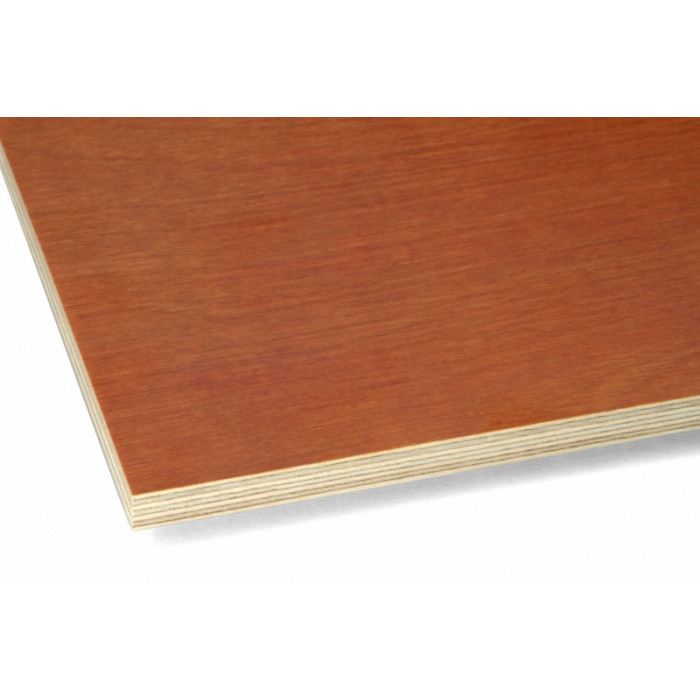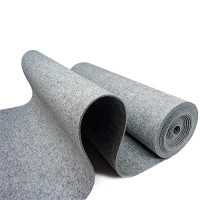Uman furniture plywood FSF, laminated plywood, moisture resistant FK, transport, chipboard, fiberboard
Plywood is a multilayer material made from several very thin sheets (3-23) of wood veneer glued together. To increase the strength, the layers are superimposed perpendicular to each other. Gluing takes place under pressure using a press. The finished material is durable and flexible.
Previously, plywood was used to make budget-class furniture, since the material was inexpensive and was available to almost everyone. Over time, it was undeservedly forgotten, but now it is again in demand by designers to create practical and original designs.
Manufacturers offer several types and grades of plywood. The most common are birch and pine veneer. There are 4 main types of material:
FOF. This is a moisture-resistant material covered with a special decorative layer of PVC film.
FSF. Non-laminated plywood, which is highly moisture resistant. The material has a wide range of applications (construction, aircraft industry, furniture). In its production, an adhesive composition based on formaldehyde is used.
FC. A material made from birch veneer using urea-formaldehyde resin.
FBS. Plywood treated with bakelite varnish, which gives the material increased physical and chemical properties. It is also called "marine" or "Finnish". This type of plywood does not lose its properties under the influence of high humidity, high temperature and sea water.
Manufacturers offer several types and grades of plywood. The most common are birch and pine veneer. There are 4 main types of material:
Furniture plywood is a universal building material that is made from natural wood raw materials and has several layers.
Experts recommend paying attention to the advantages of furniture plywood:
environmental Safety;
low price range;
lack of dimensional fluctuations with unstable humidity;
ease of use, maintenance and restoration;
a wide range of sizes;
light weight;
flexibility;
high level of strength;
Possibility of making your own furniture.
Since a huge amount of very different furniture is produced, the requirements of the furniture industry for plywood are not limited to the fourth grade. On the contrary, such designations as furniture plywood, furniture quality plywood, joinery plywood, joinery plywood, furniture plywood are all synonymous for furniture manufacturers with the highest quality plywood, usually sanded and not lower than second grade. Since plywood is often used for the final finishing of furniture, such as countertops, cabinets, fronts, etc., it should not have any surface defects at all. In decorative finishing, even large differences in the shades and texture of the wood pattern are not allowed. In the furniture industry, only the highest quality plywood is used, which has a smooth, even surface. The production of plywood furniture is often organized using only the first or second grade plywood of the FK brand, polished on both sides with a thickness of 8mm, 10mm, 12mm, 15mm.
To date, FC plywood is most often used for the manufacture of furniture. A feature of plywood of this brand is that the layers of veneer are glued here using carbamide glue, which provides an average level of moisture resistance. This is more than enough for interiors, where normal air humidity is maintained, but at the same time, the adhesive joint does not emit substances harmful to human health, which is especially important in residential areas. Moisture-resistant plywood is used for the production of such types of furniture as: bathroom furniture, outdoor furniture, furniture for permanent use in high humidity conditions. In this case, only high grades of plywood of the first or second are also used, since plywood is usually coated on top with paint or varnish, which increases its resistance to moisture. As for the veneer wood from which plywood for furniture is made, here preference is given to birch, which is not only stronger than softwood, but also has a denser and more beautiful texture. Coniferous plywood is not so hard and durable, but it is lighter, so they try to use plywood material for the manufacture of internal partitions and drawers.
Plywood for metal-framed furniture and folding furniture can have a laminated surface covered with a special phenolic film and is called laminated plywood. Coating of laminated plywood can be of different colors and protects the furniture surface from mechanical damage, exposure to moisture, sunlight, etc. Laminated plywood and moisture-resistant FSF plywood used in folding banquet furniture significantly increases its service life. Due to the properties of plywood, folding furniture can be used in conditions of constant transportation and increasedny mechanical loads without deterioration of the functional characteristics
The undeniable advantage of plywood furniture is the relatively light weight of the material, which is surprisingly combined with strength and durability. It is impossible not to mention the amazing performance properties of the material - resistance to moisture and sudden changes in temperature, sunlight and other factors in some brands of plywood significantly exceeds the similar properties of natural wood. In addition, plywood is endowed with excellent aesthetic properties and high-quality plywood furniture looks no worse than solid wood products, especially when plywood veneered with natural valuable wood is used. It should also be noted that plywood is perfectly compatible with other widely used materials in furniture, as well as a variety of color solutions when it is coated with paint, natural wood veneer of valuable species or decorative plastics. All these possibilities significantly expand the horizons for the flight of design ideas. Plywood lined with plastics is used in furniture for catering places with high traffic and for commercial equipment. Furniture made of plywood lined with plastic has excellent performance characteristics, is resistant to dirt and mechanical stress, is easy to clean and does not require special care.
You can buy furniture plywood and parts from it in such a specialized company as TD Helios, while you can be sure that it fully complies with all sanitary norms and rules, since each product has a quality certificate and is stored without violating the relevant standards.
Chipboard (official abbreviation - chipboard, informally - chipboard) - a sheet composite material made by hot pressing wood particles, mainly chips, mixed with a binder of non-mineral origin with the introduction, if necessary, of special additives (6-18% by weight of the chips) on single- and multi-storey periodic presses 0.2–5 MPa, 120–190°C) or in continuous belt, caterpillar or extrusion units.
Flaws
Chipboards of emission class E2, E3, E4 are toxic for the production of furniture: binder resins that are used in its production emit formaldehyde harmful to humans;
The material has limited moisture resistance;
The material is less durable than solid or glued wood.
Application
They are used for the manufacture of cabinet, upholstered and other furniture, building elements (before the widespread use of gypsum fiber (GVL), gypsum plasterboard (GCR) sheets and oriented strand boards (OSB) were widely used in construction, including as formwork, partitions in rooms, dry plaster, in frame-panel wooden construction), wagons and in the production of containers.
Plates can be lined with veneer, paper, polymer films, plastic.
Classification
Design: according to the number of layers, chipboard is divided into single-layer, three-layer and multi-layer.
Grade: depending on the indicators of bending strength, deformation, water resistance, susceptibility to warping and deformation, chipboard is divided into 2 grades: P2 and P1.
Grade: depending on the criteria for the appearance of the board (cracks, chips, staining, spots, protrusions and depressions), chipboard boards are divided into the first grade (defects are not acceptable except for the minimum), the second grade (major surface defects are acceptable) and no grade (cardinal defects surface, used in construction).
Outer layer: slabs are distinguished with a fine-grained surface (facing with polymeric materials is possible), ordinary (veneer veneer is used) and coarse-grained (used in construction).
Level of surface treatment: sanded and unsanded chipboard stands out.
Formaldehyde emission class: according to the content of free formaldehyde in 100 g of dry chipboard, classes E05 (up to 4 mg), E1 (from 4 to 8 mg), E2 (from 8 to 20 mg) are distinguished.
Water resistance: in addition to the fact that the P2 grade board has the best water-resistant properties (22% deformation versus 33% for P1 when immersed in water for a day), a separate type of waterproof chipboard is distinguished, intended for the production of furniture and specific construction work.
Fire resistance: when flame retardants are added to the chipboard, the board acquires fire-resistant characteristics.
Density: according to the density, chipboard is divided into a board of low density (less than 550 kg/m³), medium (550-750 kg/m³) and high density (more than 750 kg/m³).
According to the pressing method: flat or extrusion pressing.
Varieties of chipboard
Chipboard, lined with films based on thermosetting polymers
Drilling a hole in a piece of furniture made of laminated chipboard (LDSTP)
Chipboard, lined with films based on thermosetting polymers (informal, often used abbreviation - chipboard) - chipboard, produced on the basis of high qualitynatural chipboard, lined at high pressure and temperature with a resistant melamine film and sometimes (for expensive types of chipboard, lined with films based on thermosetting polymers) coated with a special varnish that is resistant to moisture and mechanical damage. Lamination provides a good appearance, high consumer qualities and improves physical and mechanical properties. Chipboard lined with films based on thermosetting polymers does not require further finishing and is widely used for furniture production.
Extrusion chipboard
Wood particles in such boards are located predominantly perpendicular to the plane of the board, as a result of which these boards have low bending strength perpendicular to the plane. In Russia, the production of extrusion boards is practically absent. Chipboards of the extrusion pressing method are divided into tubular, strip, soundproof and fireproof. Slabs vary considerably in density, size, weight and cost. In particular, tubular extrusion boards are used in the production of interior doors, as they have a high degree of sound insulation.
No questions about this product, be the first and ask your question.


